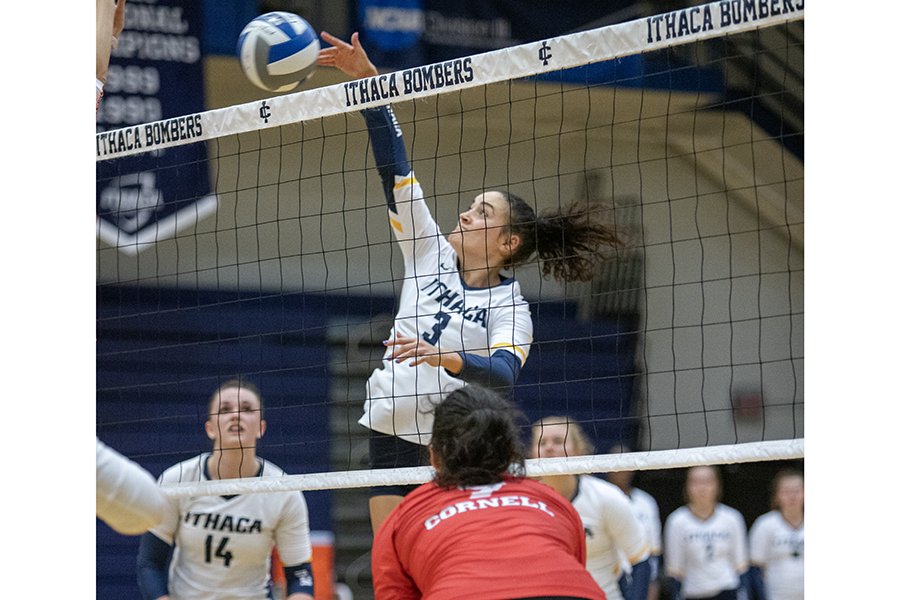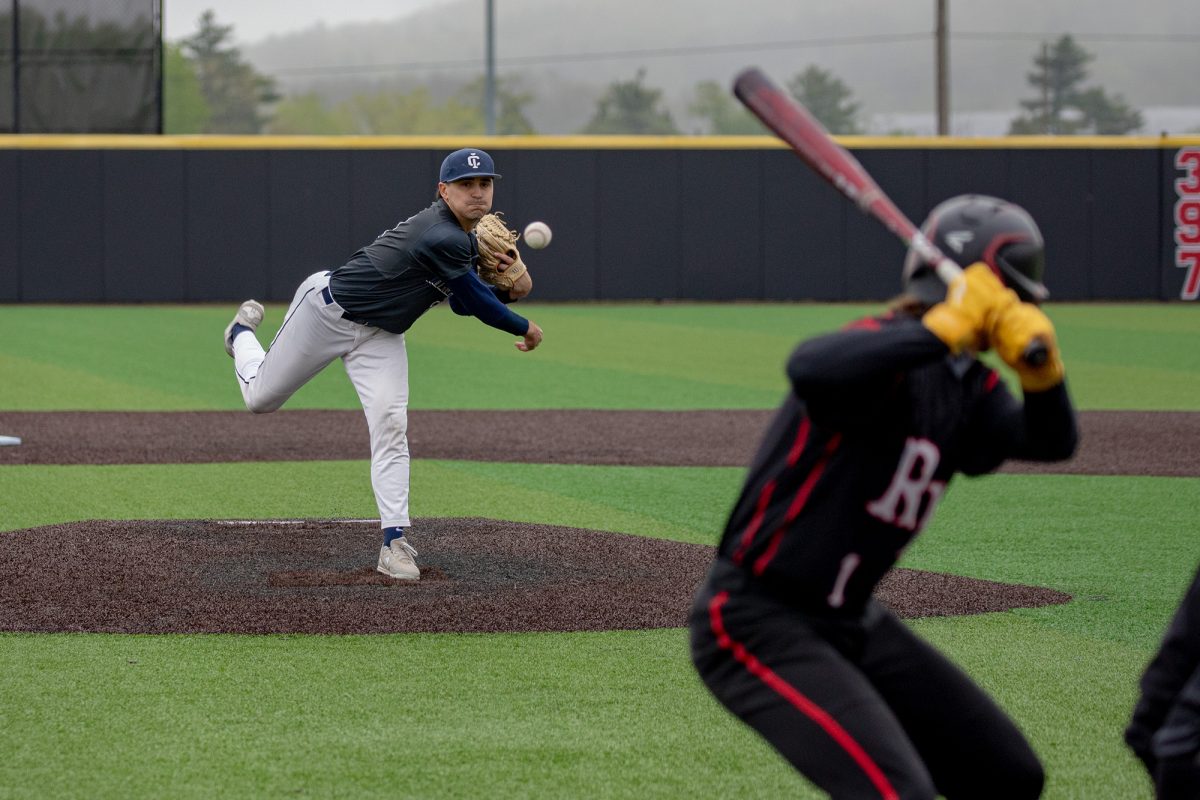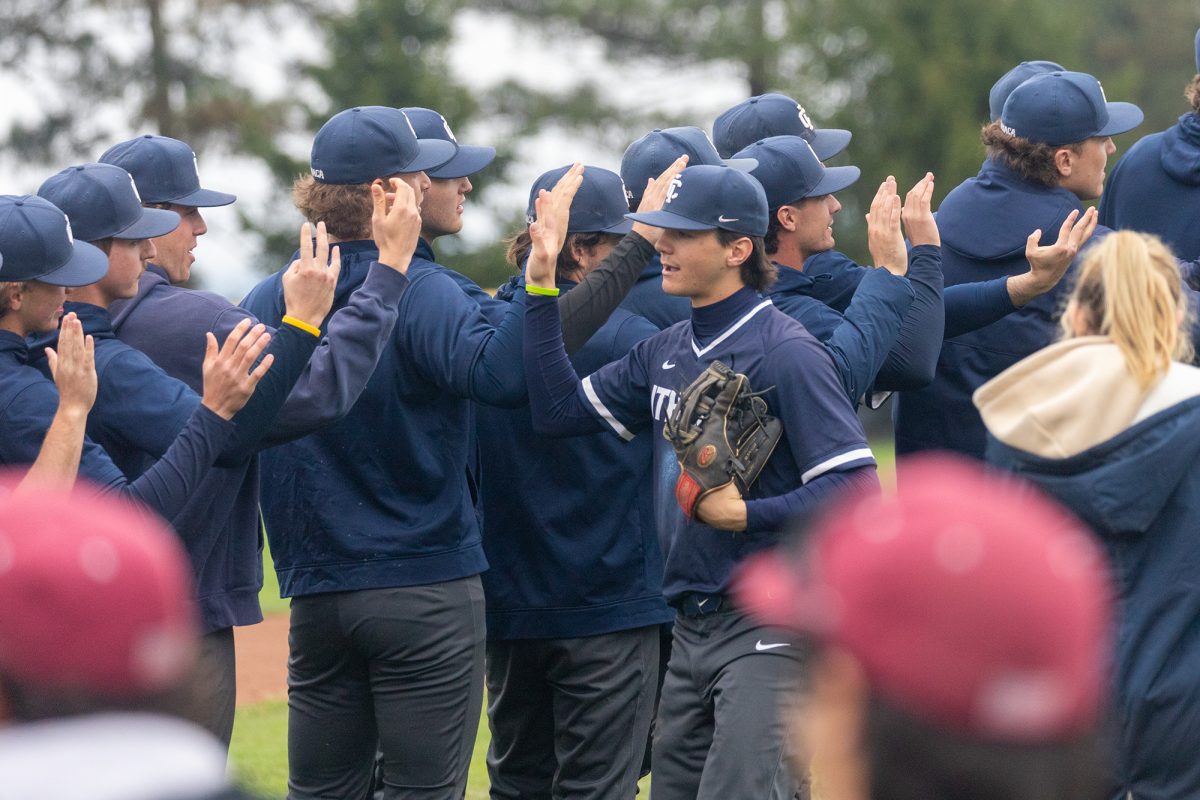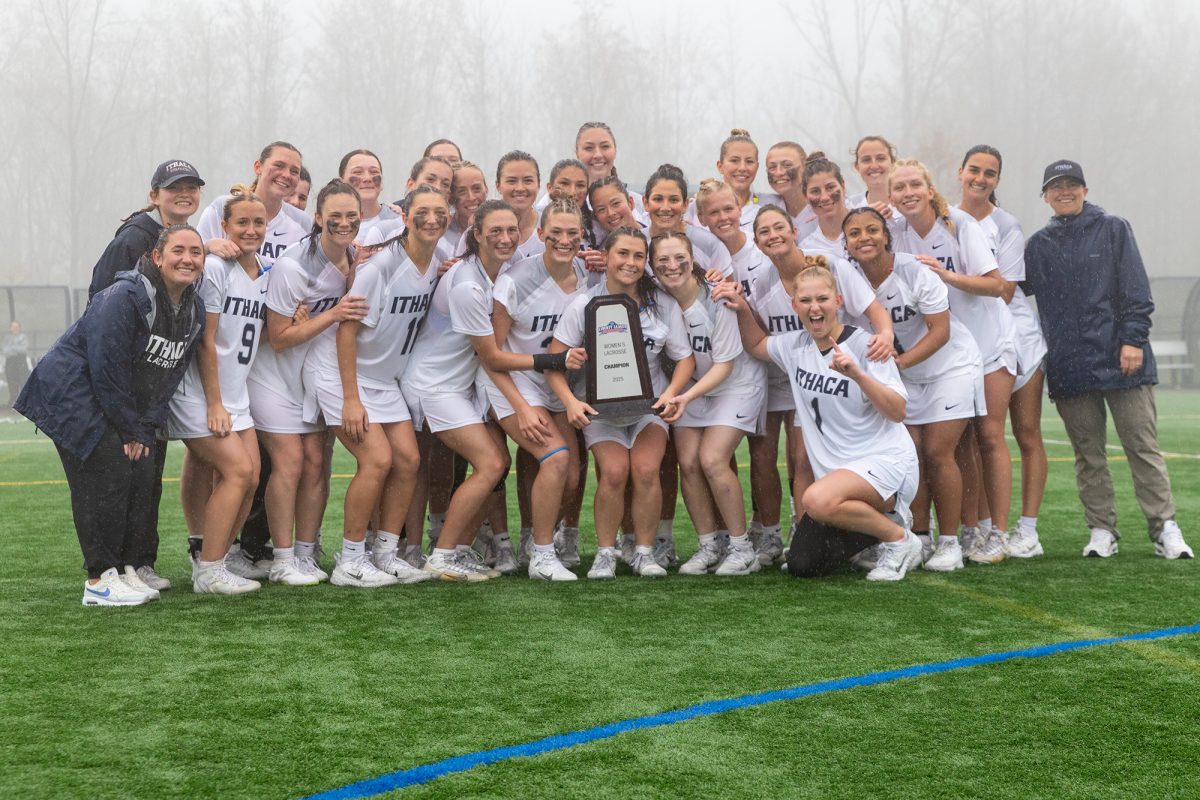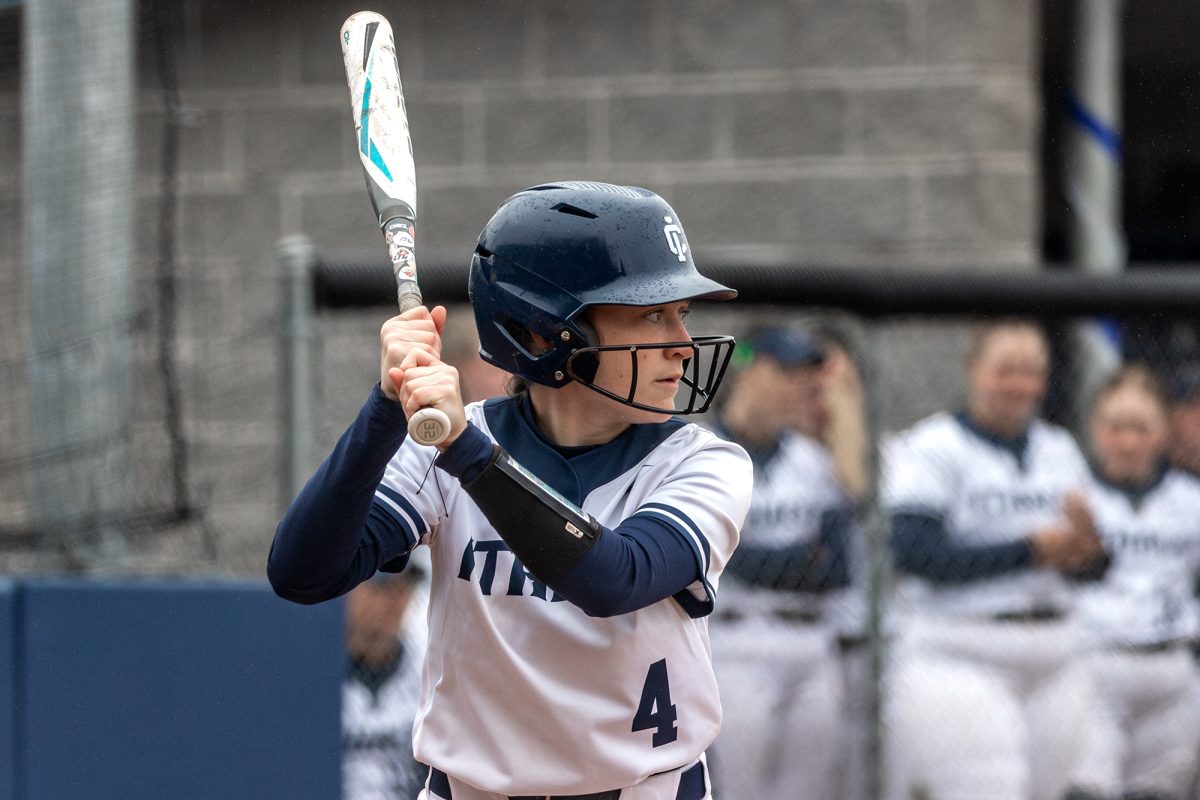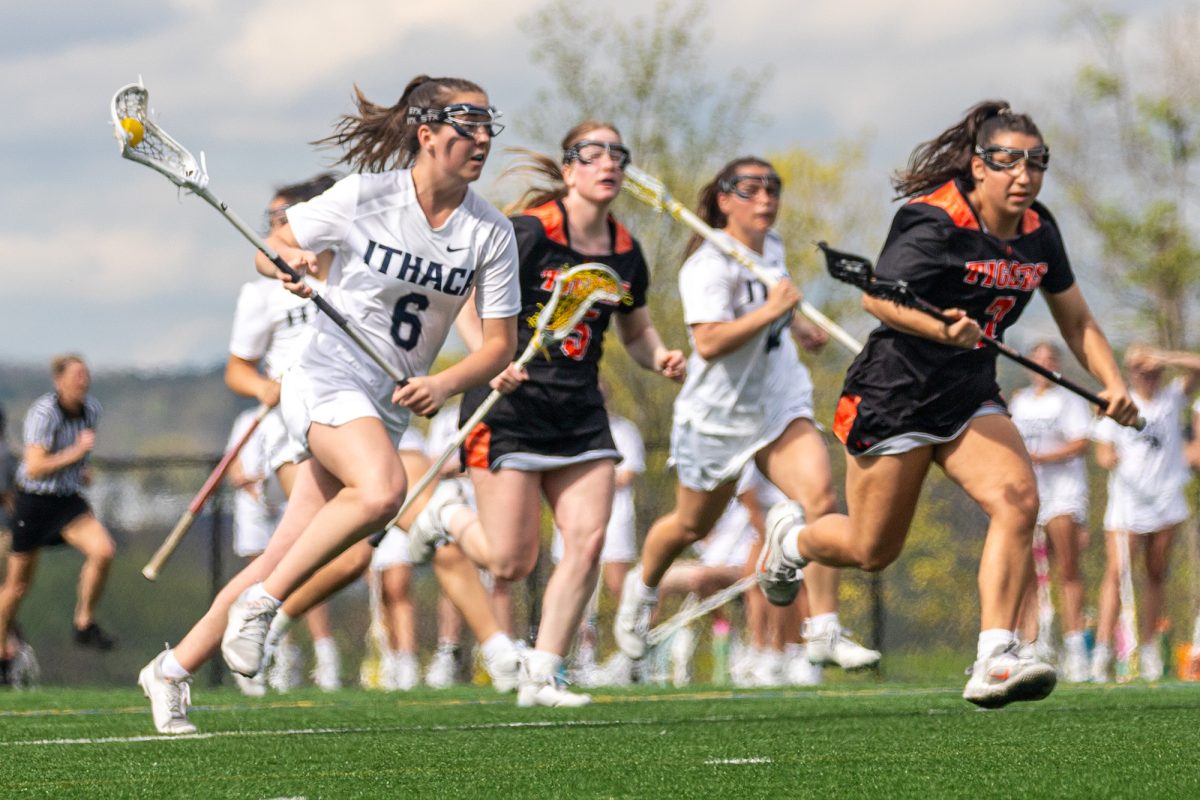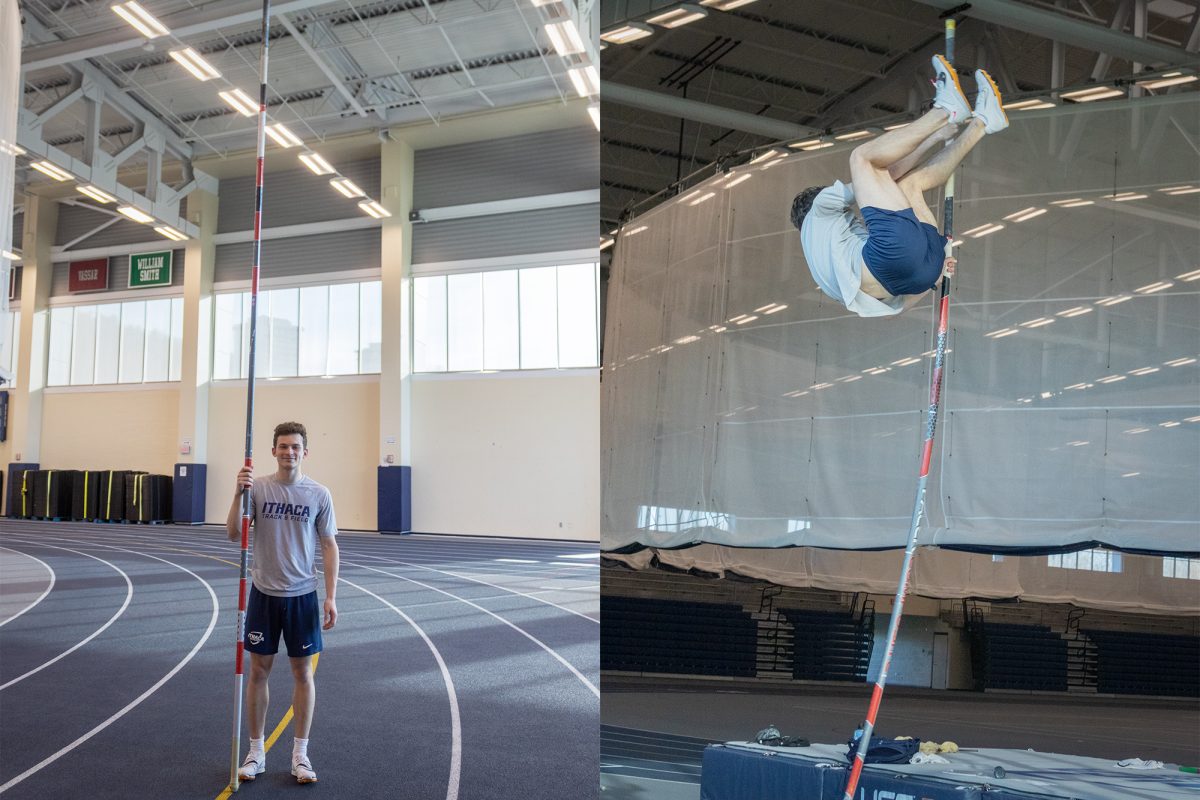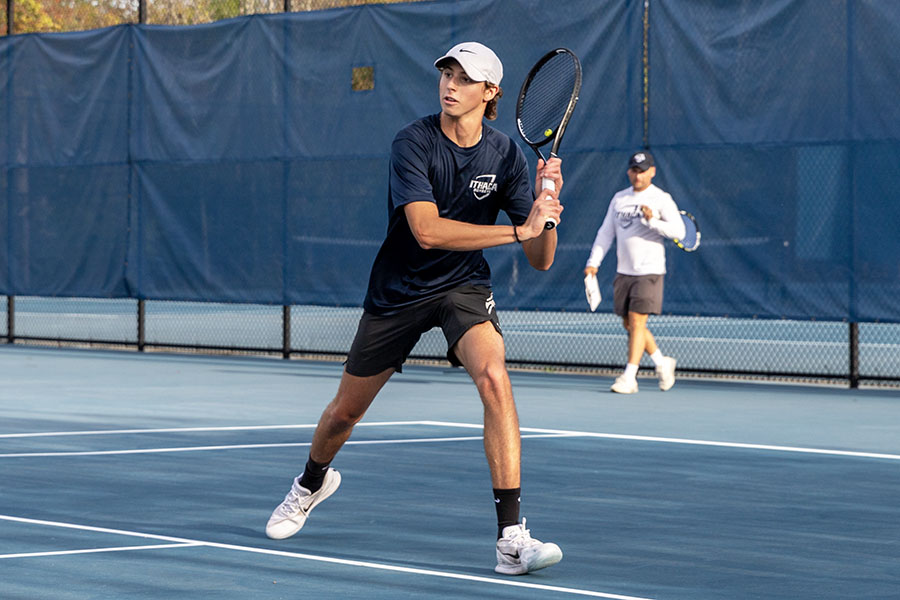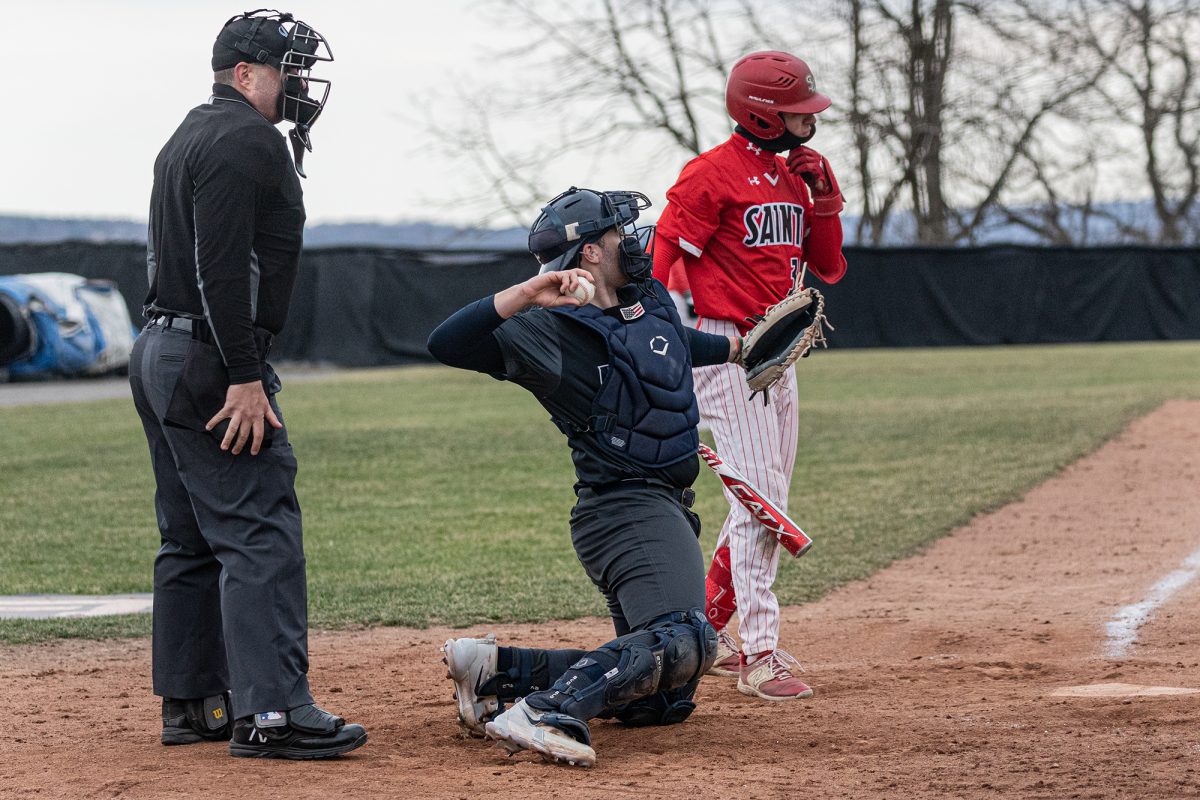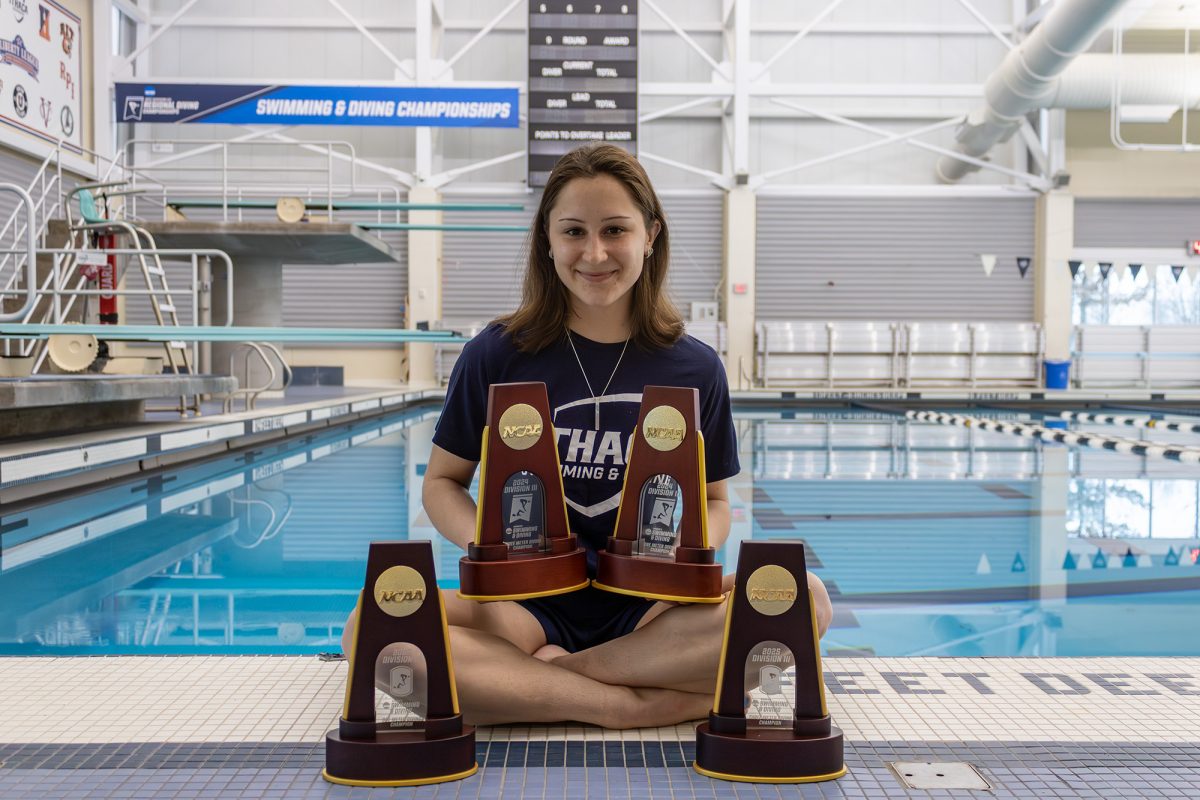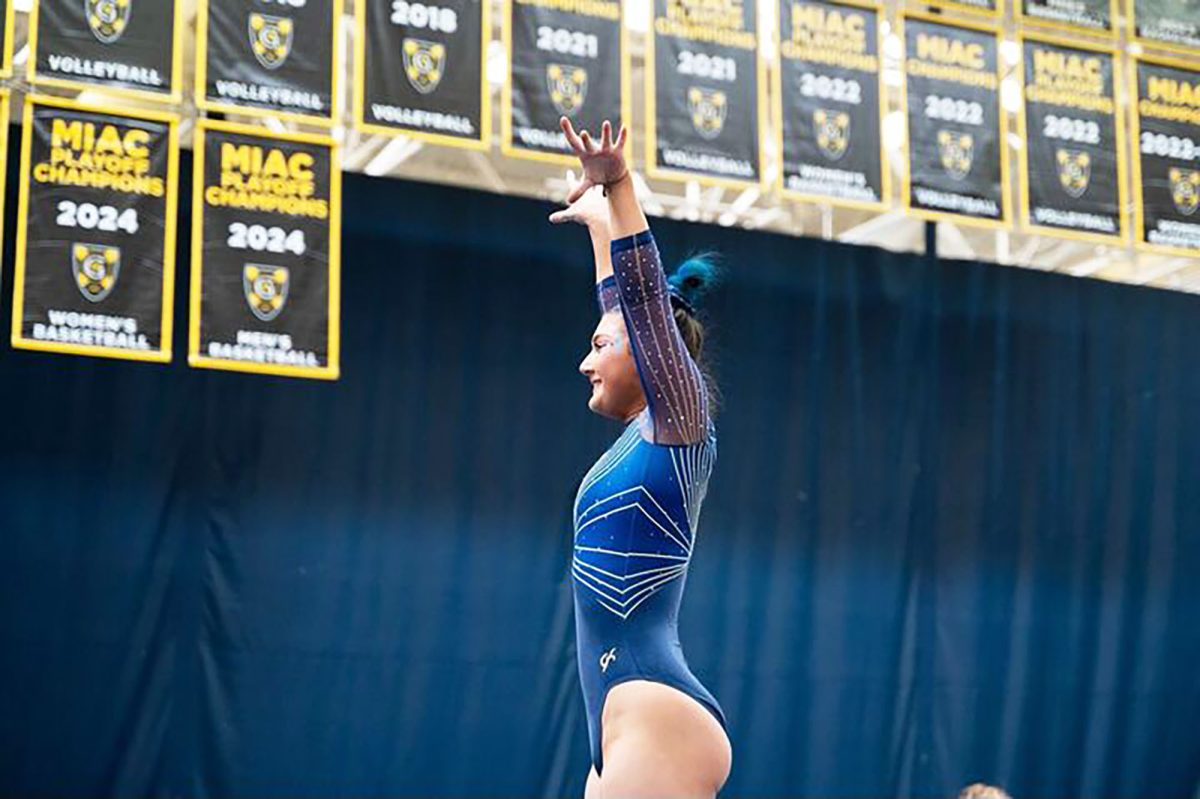From the Atlantic to Pacific, the Ithaca College women’s volleyball team comes to the Finger Lakes region from across the country. Only two players on the 2023 roster are from New York State, and only four are from the Northeast.
Head coach Johan Dulfer said volleyball is more popular in the Midwest and in states like Florida and California, so there is a greater pool of players to recruit from in those “hubs.”
“[National Collegiate Athletic Association] teams of all divisions are recruiting nationally,” Dulfer said. “States like Minnesota and Nebraska are really good at volleyball — it’s so much bigger there.”
Because a lot of the players come to Ithaca from so far away, Dulfer said they tend to have a greater connection with one another. Dulfer, who came to the U.S. from Holland for college, said that being far from home can be a positive in team development.
“The commonality is homesickness, and homesickness is longing for a situation that no longer exists,” Dulfer said. “They all have to overcome that together.”
Dulfer said that a majority of players are found at tournaments for club teams. Club-level volleyball programs run from November to July each year and players will compete in multi-day tournaments. Dulfer said that the players grow significantly in skill level by joining these club teams, attending up to seven or eight tournaments each year. College coaches, like Dulfer, will attend these tournaments to recruit players that stick out from the pack.
“[Volleyball] is a huge scene in the Midwest and Texas. … It’s more of a lifestyle, but it’s coming along in New York too,” Dulfer said. “We’re not just looking at those hubs. [Players] can be anywhere. I just go out and [look for] the best player that we can find.”
Dulfer said that the Bombers tend to have more athletes coming to Ithaca from outside of the Northeast because there is a greater population of players to recruit from in areas where volleyball is more popular.
“We’re not saying that athletes from New York can not play here,” Dulfer said. “It is harder to get the talent we are looking for from New York because there is a smaller talent pool.”
Dulfer said that because there are fewer volleyball players in New York looking to play at the college level, other schools that are able to offer a larger scholarship or more benefits tend to win the player’s favor.
“Most of the time we found [the players], the vast majority of our girls did not know about [Ithaca College] until we reached out,” Dulfer said. “Sometimes the girls find us, like Jamie [Koopman].”
Senior middle/right side hitter Jamie Koopman — who hails from Tampa, Florida — said she knew she wanted to go to school outside of her home state and found the college during her search process.
“For me, I wanted to go to a school for my academics,” Koopman said. “I knew I wanted to study abroad, I knew I wanted smaller classrooms. … I like to travel, I like being far from home. I like not knowing anyone, I like making friends and new connections. I like being uncomfortable. Ithaca [College] hits all the ticks.”
When it came to choosing a school, Koopman said she was originally drawn to Ithaca for its academic reputation.
“The [Roy H. Park School of Communications] here is incredible and I knew that coming in, but I wanted to play volleyball,” Koopman said. “I wanted a smaller campus that fed into my athletic desires and my academic needs. I think Ithaca [College] was a really great fit and it happened to be great for volleyball as well.”
Sophomore outside hitter Karina Garcia from El Paso, Texas, also heavily considered academics when looking for colleges where she could play volleyball.
“It was so hard trying to find a school that was perfect for my major and perfect for volleyball, then I got a message from Dulfer. … I didn’t really consider being so far away, but the [physical therapy] program was so good and the team was super friendly and together which was super important to me,” Garcia said. “The [physical therapy] program was great, the team was great, the campus was pretty, it just all worked out perfectly.”
Koopman said that having the team be made up of women from across the U.S. can create an environment for the players to learn from one another about different upbringings based on their home regions.
“I personally think [being from different areas of the country] is what makes our team culture so exciting,” Koopman said. “Our coach is just really good at recruiting and with every girl, we just mesh into one by the end of the season.”
Despite all wanting similar results out of their time on the court, Koopman said that the athletes have different perspectives based on where they each grew up. She said that being together every day at practice and working together toward a goal creates an open and honest atmosphere.
“When you play on a team, that girl may not be your best friend but you have to still be a teammate,” Koopman said. “To do that with someone with polar opposite views from you is really hard to do and it’s a big mental challenge. It’s never a bad thing, I just see it as a learning curve.”
Koopman said major hubs for volleyball — like California, Texas and Florida — have different mindsets when approaching the game. She said that because there is so much competition in volleyball hubs between teammates, she feels the mental intensity is higher for her.
“Volleyball is a sport,” Koopman said. “Like any other sport, you all train the same way, but I think it’s very much of a mental difference coming from a place where volleyball is very good and very popular … in order to stand out, you have to do a little bit more. I’ve connected with those girls [from volleyball hubs] because it’s more of a do-or-die thing like, ‘I’m gonna go, I don’t care how hard I have to work, what I have to do, I’m going to play.’ It’s much more cutthroat in those hubs.”
Similarly to Koopman, Garcia played volleyball in a hub for the sport which led to high-intensity play. Garcia said that with girls coming from all over the country, they are able to learn more about the sport from watching each other.
“There’s different play styles in every single state,” Garcia said. “I think it helps because New York really isn’t one of the best places for volleyball. You don’t see many club teams from New York, but in Texas, there’s a bunch of good competition. There’s different levels of competition outside of New York and I think that’s why coach Dulfer is recruiting from all over because there’s just so much better [volleyball] out there.”
Garcia said the whole team coming to the college from far distances can help with team bonding, especially when the athletes arrive in Ithaca as first-year players.
“You have people who are in the same shoes as you,” Garcia said. “They’re super far away from their families and their homes, and I honestly think that brings a team closer together.”


